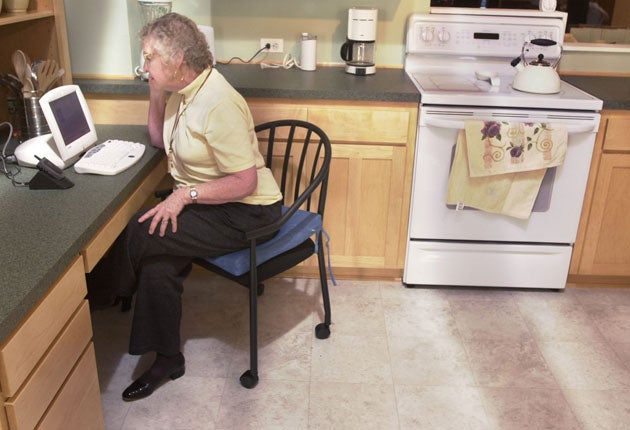Save on tax by working from home
Extra costs can be deducted. Chiara Cavaglieri reports

Working from home has potential benefits for employer and employee alike, with studies finding that it can boost productivity and reduce overheads as well allowing employees to fit work around their lives and avoid transport costs. And this Friday marks the third annual Working from Home Day.
With the recession in full flow, having employees work from home could open up more job opportunities. "As technology advances, more and more companies will realise the huge cost benefits," says Paula Wynne, co-founder of RemoteEmployment.com.
The self-employed will already be spending some, if not all, of their time working from home. This offers the welcome opportunity to avoid a long and stressful commute, saving time and money. However, working from home can incur extra costs which may take a chunk out of any transport savings. Kitting out an office space can be costly and household bills will shoot up, but the good news is that most of these costs can be deducted from your taxable income.
Typical examples of valid expenses which can be set against tax include telephone calls, broadband usage and lighting and heating bills. For example, if business operations take up a room in a five-room house, it's allowed to set up to one-fifth of the total bill against tax. Self-employed people who use their cars for work can make a claim but records must be kept of the number of miles travelled on the job.
Professional expenditure such as accountancy fees and office supplies may also be deducted, but all expenses must be deemed to be what Revenue & Customs refers to as "wholly, exclusively and necessarily in the performance of the duties of the employment". Self-assessment tax returns must be filled in each year and proper records should be kept to justify any expense deductions.
Having a good, up-to-date computer is important for many home-workers and there is tax help available provided it's used for self-employed work or you are a limited company. However, the rules are complex and specific tax advice should be sought.
Working from home isn't just the preserve of the self-employed and neither are the tax benefits. Employees with children aged 16 or under or a disabled child under 18 have the statutory right to ask their employer for flexible work arrangements. But although employers must seriously consider any application, they have no legal requirement to agree. For workers who choose to work from home under a "home-working arrangement" with their employer there is no direct tax relief, but employers are allowed to pay £3 per week to those staff working from home, which is exempt from tax and National Insurance, towards the extra household expenses.
More can be paid but only upon proof that the costs incurred by the employee working from home are higher than the £3 allowance. HMRC is firm about what constitutes a valid expense. "Don't attempt to deduct non-business expenses. If HMRC finds that you have been doing this the penalties will be severe," says Chas Roy-Chowdhury of the Association of Chartered Certified Accountants.
Despite the potential for tax relief, there are pitfalls. "There are several concerns including whether the home insurance policy would be invalidated, and what the local authority would think," says Nick Bamford from advisors Informed Choice. Those running a business from home may be liable for business rates and for capital gains tax when it comes to selling the property if part of the home is used exclusively for work purposes.
Join our commenting forum
Join thought-provoking conversations, follow other Independent readers and see their replies
Comments